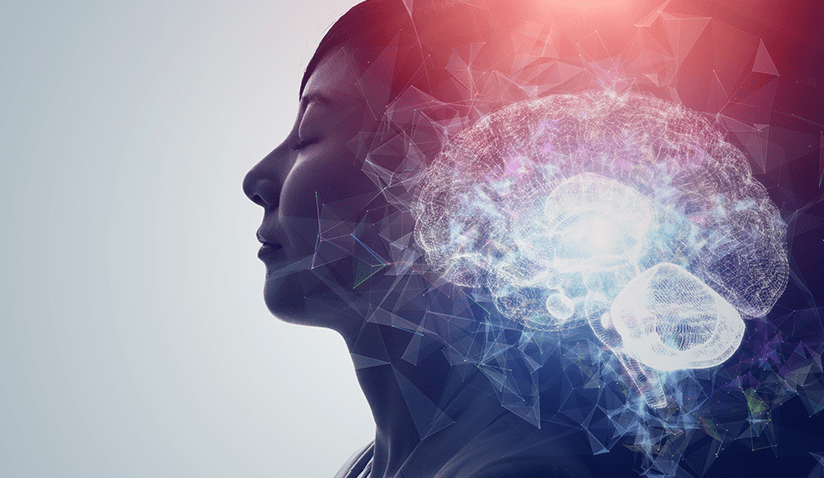THE BRAIN AND SLEEP: THE NEUROLOGICAL PERSPECTIVE OF SLEEP DISORDERS

Sleep disorders are linked to various chronic health conditions, such as heart problems, chronic pain, lung diseases, and mental illnesses. However, they may also be the result of an underlying neurological problem, such as Alzheimer’s, Parkinson’s, epilepsy, or a stroke.
A 2019 survey commissioned by global health technology enterprise, Philips, involving over 11,000 respondents across 12 countries, found that 67% of adults encounter sleep disturbances on a nightly basis. Since then, “COVID insomnia” or “Coronasomnia” has exacerbated the scenario, with sleep problems such as circadian rhythm disruption and insomnia after COVID among the reported symptoms. The growing prevalence of sleep disorders has prompted the Centers for Disease Control and Prevention (CDC) to describe it as a public health epidemic.
Recent research has shown how sleep is inextricably linked to neurological health, be it in recovering from or preventing neurologic disease. Sleep neurologists specialize in identifying and treating sleep problems that accompany neurological conditions. This enables them to customize treatment plans that can improve the quality of sleep and prevent further complications from disrupted sleep.
Continue reading to learn more about neurological sleep disorders, their symptoms, diagnosis, and treatment options.
What Are Neurological Sleep Disorders?
Sleep disorders, also known as sleep-wake disorders, are conditions characterized by problems with the timing, duration, and quality of sleep. Sleep-related disorders significantly reduce patients' functional capacity and quality of life.
Having sleeping troubles causes excessive daytime sleepiness, drowsiness, and exhaustion. Additionally, the effects of sleep deprivation on the brain include mood swings, irritability, and problems with memory and decision-making. It has also been linked to certain psychiatric disorders, such as depression, dementia, and hyperactivity.
In addition, obstructive sleep apnea, the most commonly treated sleep disorder, increases the risk of stroke, cognitive problems, and poor seizure control.
Sleep problems can be caused by neurological conditions that interfere with brain functions and disrupt the sleep-wake cycle.
Some of the primary neurological sleep disorders include:
- Central nervous system hypersomnia
- Restless leg syndrome
- Narcolepsy
- Parasomnias
- Periodic limbic movement
- Central sleep apnea
- Circadian rhythm disorders
- Fatal familial insomnia
- REM sleep behavior disorder
Common neurological conditions that may have sleep deprivation as a symptom include:
- Alzheimer's disease and other dementias (over 45% of Alzheimer’s patients have sleep disturbances)
- Epilepsy (seizures can cause sleep disruption, and – vice versa – sleep disorders can lead to an increase in seizures)
- Neuromuscular disorders (sleep difficulties are common in patients with neuromuscular disorders, sleep-related breathing disorders are particularly common and significant for the prognosis)
- Parkinson’s disease and movement disorders (Sleep disorders are very common in Parkinson’s disease)
- Stroke (Around half of stroke survivors have insomnia and sleep-related breathing disorders)
- Multiple Sclerosis (MS) (multiple sclerosis can have a significant effect on sleep, about a third suffer from Restless-legs-syndrome)
What Are Common Signs Of Neurological Sleep Disorders?
The symptoms of sleep-related disorders in neurology are more complex than simply bad sleep quality.
There are several possible signs and symptoms of neurological sleep disorders, including:
- Disrupted nighttime sleep
- Difficulty falling asleep or remaining asleep (insomnia)
- Excessive daytime tiredness
- Feeling very sleepy during the day
- Neurological symptoms (problems with thinking, concentrating, decision-making, memory, mood, balance, and coordination)
- Difficulty controlling seizures using medication (in patients with epilepsy and obstructive sleep apnea)
- Low levels of cerebrospinal fluid (CSF) hypocretin (in patients with narcolepsy)
- Involuntary body movements during sleep that can cause injury (in patients with parasomnia and restless leg syndrome)
- Talking, shouting, or screaming during sleep
- Night terrors (episodes of intense fear or screaming during sleep)
The specific symptoms related to your sleep difficulties can help diagnose the nature of your sleep disorder.
Diagnosis Of Neurological Sleep Disorders
If a sleep disorder is suspected, specialized centers typically feature a sleep laboratory equipped with state-of-the-art technology, including infrared cameras, body position sensors, and a digital recording station that can help accurately diagnose and treat all types of sleeping disorders. A thorough examination is performed to identify sleep abnormalities. This test is known as polysomnography, commonly known as a sleep study. During a polysomnography study, eye and leg movements, blood oxygen levels, heart rate, respiration, and brain waves are all recorded.
Sleep neurologists will conduct a comprehensive evaluation to determine whether a neurological condition is causing your sleeping difficulties.
During your initial consultation, you will receive a thorough physical examination with special attention to neurological and breathing symptoms. Your healthcare team will also obtain your complete medical history and sleep records. You will also complete a sleep questionnaire that aids in collecting your clinical history.
After an evaluation, you may be referred for an overnight and/or daytime sleep study. This is usually done in case of hypersomnia, e.g., as part of a narcolepsy sleep study.
Treatment Of Neurological Sleep Disorders
Neurologists collaborate with sleep medicine experts and other specialists to provide the best care for patients with neurological sleeping disorders.
Depending on the cause and severity of your sleep/wake disorder, the neurologic sleep disorder treatment may include the following:
- Behavioral interventions: These include educating patients about the nature of their sleeping disorders, their underlying conditions, and sleep hygiene recommendations that can help them improve sleep quality. Patients learn specific relaxation methods (autogenic training, progressive muscle relaxation, Qi Gong) and undergo various forms of psychotherapy.
- Chronotherapy: This therapeutic intervention focuses on resetting the patient’s circadian rhythm (biological clock) by adjusting bedtime according to natural light exposure. Different types of chronotherapy include bright light therapy, sleep phase advance therapy, and sleep deprivation therapy.
- Medications: A drug treatment can be useful temporarily, with a wide variety of active ingredients - depending on the severity and type of sleep disorder - being used, whereby conventional sleeping pills can be largely dispensed with.
- Positive Airway Pressure therapy: Special devices, such as a CPAP (continuous positive airway pressure) machine or BiPAP (bilevel positive airway pressure) ventilator and other special ventilation therapies, can successfully treat breathing-related sleep disorders. These devices prevent breath pauses during sleep by pushing air into your lungs with positive airway pressure.
- Surgery: Obstructions in the upper respiratory tract, such as tumors of the nose and throat or a deviated septum, may cause sleep-related breathing disorders. Surgery can remove these obstructions, improve breathing, and resolve sleeping issues. Experience has shown that an operation is only necessary in very rare cases.
The Takeaway
The brain is responsible for controlling sleep, and different neurological factors can affect the sleep process. Not getting enough sleep may be a symptom of an underlying neurological problem.
Sleep disorders can also negatively affect a person’s quality of life and increase the risk of chronic health problems, such as heart disease, kidney disease, hypertension, diabetes, stroke, obesity, and depression. Both quality of life and life expectancy can be affected by sleep disorders.
Most sleep disorders can be very successfully treated with the appropriate diagnosis.
Modern centers for treating sleep disorders caused by neurological problems use the latest advancements in sleep medicine to identify the problem and develop specialized treatments for each patient.
As pioneers since 1950, Kliniken Schmieder has set new medical standards utilizing the latest therapeutic innovations in Neurology and Neurological Rehabilitation. Annually, over 14,000 patients from across the world, in all stages of acute and rehabilitative recovery, benefit from their expertise in neuro rehab. Currently, Kliniken Schmieder operates a network of six cohesive clinics across Germany, which have earned global recognition as Centers of Excellence in Neurorehabilitation.
The Sleep Medicine Center at Kliniken Schmieder is one of the few specialized and comprehensive centers of its kind in Germany and Europe with unparalleled expertise in diagnosing and treating all forms of sleep disorders and particularly those associated with neurological diseases.
Sources:
- https://www.ncbi.nlm.nih.gov/pmc/articles/PMC6865193/
- https://www.ncbi.nlm.nih.gov/books/NBK547676/
- https://www.ncbi.nlm.nih.gov/pmc/articles/PMC3554970/
- https://pubmed.ncbi.nlm.nih.gov/23099127/
- https://www.ncbi.nlm.nih.gov/pmc/articles/PMC5765591/
- https://pubmed.ncbi.nlm.nih.gov/15798938/
Disclaimer: Please note that Mya Care does not provide medical advice, diagnosis, or treatment. The information provided is not intended to replace the care or advice of a qualified health care professional. The views expressed are personal views of the author and do not necessarily reflect the opinion of Mya Care. Always consult your doctor for all diagnoses, treatments, and cures for any diseases or conditions, as well as before changing your health care regimen. Do not reproduce, copy, reformat, publish, distribute, upload, post, transmit, transfer in any manner or sell any of the materials in this blog without prior written permission from myacare.com.



